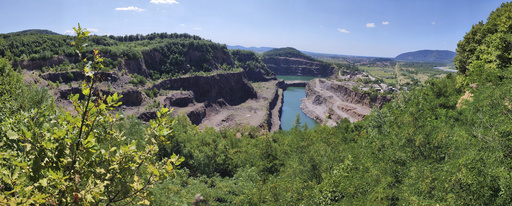WASHINGTON (AP) — Ancient stone tools found in western Ukraine may be the oldest known evidence of early human presence in Europe, according to research published Wednesday in the journal Nature.
The chipped stones, deliberately fashioned from volcanic rock, were excavated from a quarry in Korolevo in the 1970s. Archaeologists used new methods to date the layers of sedimentary rock surrounding the tools to more than 1 million years old.
“This is the earliest evidence of any type of human in Europe that is dated,” said Mads Faurschou Knudsen, a geophysicist at Aarhus University in Denmark and co-author of the new study.
He said it’s not certain which early human ancestors fashioned the tools, but it may have been Homo erectus, the first species to walk upright and master the use of fire.
“We don’t have fossil remains, so we can’t be sure,” said Roman Garba, an archaeologist at the Czech Academy of Sciences and co-author.
The chipped stone tools were likely used for cutting meat and perhaps scraping animal hides, he said.
The researchers suggest the tools may be as old as 1.4 million years, but other experts say the study methodology suggests that they may be just over 1 million years old, placing them in roughly the same date range as other ancient tools unearthed in Spain.
The very earliest stone tools of this type were found in eastern Africa and date back to 2.8 million years ago, said Rick Potts, who directs the Smithsonian Institution’s Human Origins Program.
The Ukraine site is significant because “it’s the earliest site that far north,” suggesting that the early humans who dispersed from Africa with these tools were able to survive in diverse environments.
“The oldest humans with this old stone tool technology were able to colonize everywhere from warm Iberia (Spain) to Ukraine, where it’s at least seasonally very cold – that’s an amazing level of adaptability,” said Potts.
—
The Associated Press Health and Science Department receives support from the Howard Hughes Medical Institute’s Science and Educational Media Group. The AP is solely responsible for all content.
This website uses cookies so that we can provide you with the best user experience possible. Cookie information is stored in your browser and performs functions such as recognising you when you return to our website and helping our team to understand which sections of the website you find most interesting and useful.
